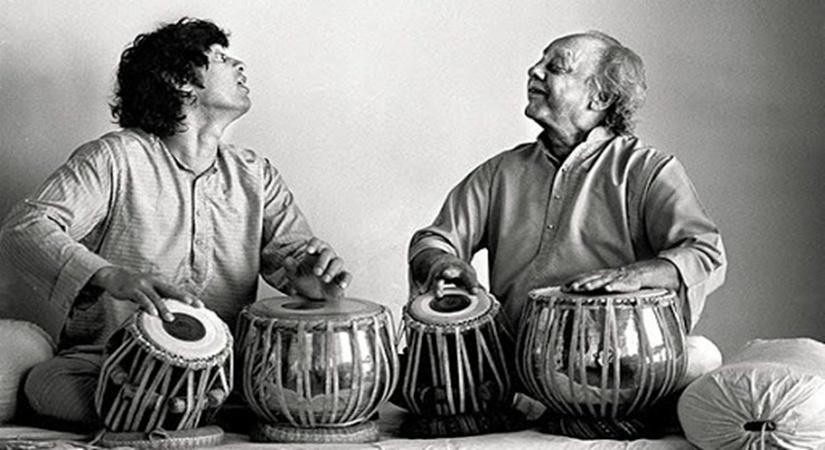On Mastery, Learning and Practice
“𝑴𝒚 𝒇𝒂𝒕𝒉𝒆𝒓 𝒔𝒂𝒊𝒅, “𝒅𝒐𝒏’𝒕 𝒘𝒐𝒓𝒓𝒚 𝒂𝒃𝒐𝒖𝒕 𝒃𝒆𝒊𝒏𝒈 𝒂 𝒈𝒓𝒆𝒂𝒕 𝒎𝒂𝒔𝒕𝒆𝒓 𝒐𝒓 𝒈𝒖𝒓𝒖, 𝒋𝒖𝒔𝒕 𝒕𝒓𝒚 𝒕𝒐 𝒃𝒆 𝒂 𝒈𝒓𝒆𝒂𝒕 𝒔𝒕𝒖𝒅𝒆𝒏𝒕. 𝑨𝒔 𝒍𝒐𝒏𝒈 𝒂𝒔 𝒚𝒐𝒖 𝒂𝒓𝒆 𝒂 𝒈𝒓𝒆𝒂𝒕 𝒔𝒕𝒖𝒅𝒆𝒏𝒕, 𝒕𝒉𝒆 𝒘𝒆𝒍𝒍 𝒐𝒇 𝒌𝒏𝒐𝒘𝒍𝒆𝒅𝒈𝒆 𝒘𝒊𝒍𝒍 𝒏𝒐𝒕 𝒅𝒓𝒚 𝒖𝒑.” – 𝑼𝒔𝒕𝒂𝒅 𝒁𝒂𝒌𝒊𝒓 𝑯𝒖𝒔𝒔𝒂𝒊𝒏.
In part 2 of the NLP Foundation Course that I run, we bring total focus to practice of NLP and its application in everyday lives. I often get questions such as – when will I be able to master all of these techniques? How long before I can do these things on my own?
Mastery is often seen as a pinnacle of achievement where not many people can reach. Masters are often put up on a pedestal as someone superior or at a higher level. It is commercially sensible to project mastery even, as that is good for business, and is one of the things people look for – is the other person a master or an authority in that subject. (More on that some other time!)
Our reverence for our masters is blinded by what they have achieved or their “success”, but not so much by a curiosity of how they got there. In sports, we get zapped by numbers and statistics and a mountain of records atop which our masters are perched. In business, we get hooked on to profits or brands created. This narrow manner of observing or appreciating mastery limits our sights to what is visible to us, but overlooks what is obvious, but invisible.
I have found “practice” to be a good means of accessing mastery. My presupposition is this – masters are not just someone who succeeded a lot or for longer than any one else, but fundamentally, they practice their “craft” relentlessly, irrespective of the outcome. They probably failed more than anyone else. So they have seen more hurdles and obstacles and surpassed them. Ask a master how they did something, and you will most likely get a question, rather than an answer. And a master recognizes the need for a student to go through the process that brings them to a learning or realization, rather than “telling” them. They practiced “ask vs tell” without attending a coach training program.
In essence then, masters are good “process” champions in living an aspect of life. They are six sigma black belts in their own respective field without the certificate. Their certificate is their depth and quality of practice. It is their ability to move their attention beyond success or failure, which isn’t in anyone’s control, to consistent and deliberate action, which is completely in their control.
When I examined mastery through this lens, a new perspective emerged. Conventionally, success rate is measured as “attempts that worked divided by total number of attempts”. By this yardstick, a master’s success rate might be low. Like I mentioned before, we often are blinded by what is visible and fail to notice that which is invisible. The attempts that a master makes whether visible to others or not, are known only to them.
Our focus is on that percentage number, whereas a master is focused on giving 100% in each attempt. Simply put, a master focuses on depth and quality of practice, rather than recurrence of instances of desired outcomes.
The attitude therefore is of learning. That there is still something to improve, or pursue or fine tune. And if we now expand that to any pursuit in life, isn’t that they key to mastery – an attitude of learning, and a temperament to practice.
We can only get better at living, if we start practicing living. Rather than attempt to master anything, how about becoming a student of it first?
Tailpiece and plug: In the NLP Foundation Course, we get down to the basics and cultivating this attitude of learning and temperament of practice. Even Mount Everest has a summit. So we attempt to start scaling our own Mount Neverest, where there is no summit, only scaling and overcoming hurdles that come along the way. That is our way of doing “sadhna” in NLP and bringing it into relevance of everyday life!

